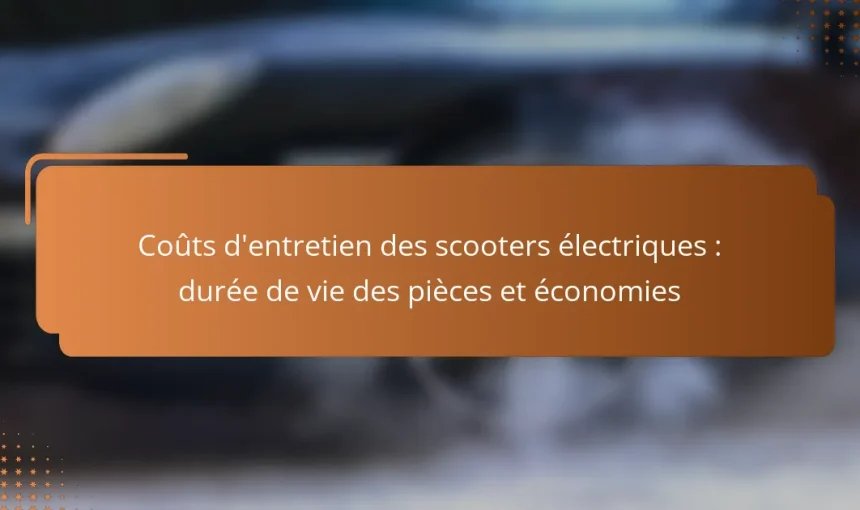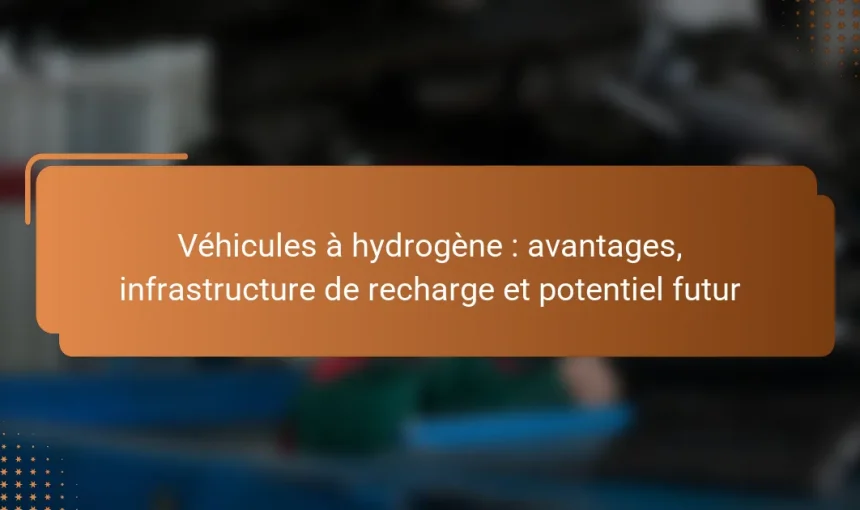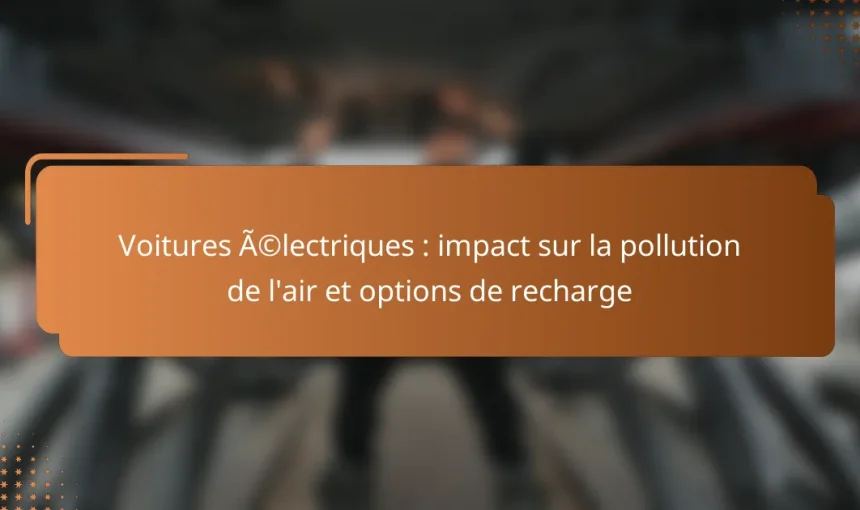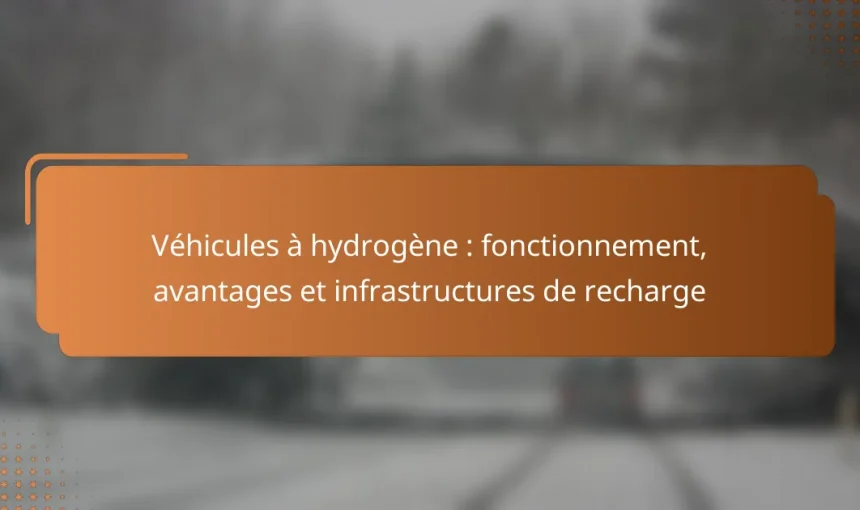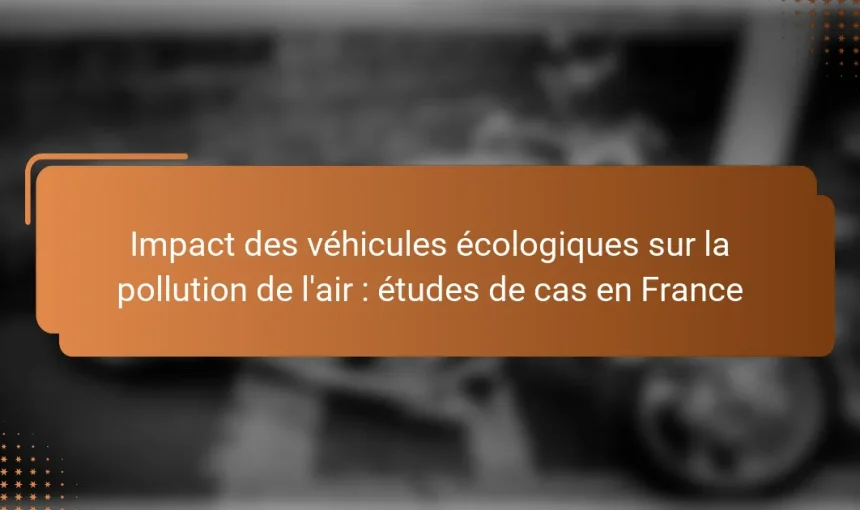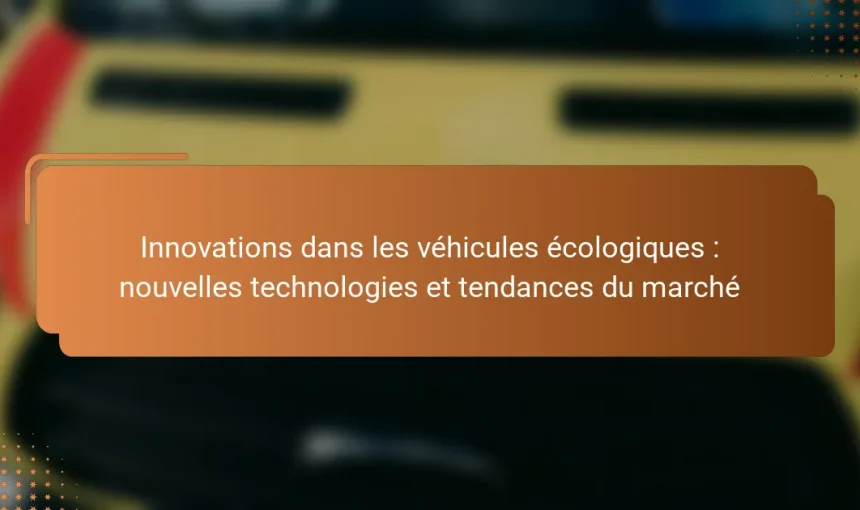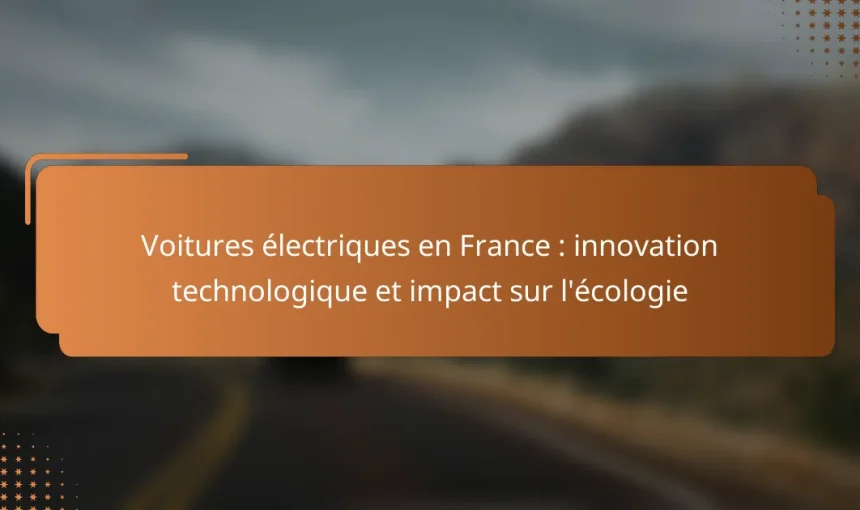The article focuses on the maintenance costs of electric scooters, detailing the various factors that influence these expenses. Annual maintenance typically ranges from 100 to 300 euros and involves checks on the battery, tires, and brakes. Key components, such as the battery, generally need replacement every 2 to 5 years, costing upwards of 500 euros, […]
Hydrogen vehicles are automobiles that utilize hydrogen as their energy source, operating through hydrogen fuel cells that convert hydrogen into electricity to power an electric motor. Prominent models in this category include the Toyota Mirai, Hyundai Nexo, and Honda Clarity, all of which emit only water vapor as a byproduct and can achieve a driving […]
Urban electric cars are vehicles specifically designed for city travel, operating entirely on electricity. These compact cars provide an eco-friendly transportation option, significantly reducing greenhouse gas emissions while offering sufficient range for daily urban commutes, typically between 150 and 300 kilometers per charge. Rapid charging technology, which can restore up to 80% of battery capacity […]
The article evaluates the maintenance costs associated with used eco-friendly cars, highlighting that these expenses are generally lower than those for traditional gasoline vehicles. It discusses factors influencing these costs, such as the reduced need for engine repairs in hybrid and electric vehicles, with annual maintenance ranging from 300 to 600 euros. Additionally, it addresses […]
The article evaluates the maintenance costs of electric vehicles (EVs) and the available charging services. Electric vehicles generally incur lower maintenance expenses compared to combustion vehicles, with annual costs estimated between 300 and 500 euros, significantly less than the 700 to 1,000 euros for gasoline vehicles. It discusses various charging options, including home charging, public […]
A plug-in hybrid vehicle combines an internal combustion engine with an electric motor, allowing for recharging via an electrical outlet. These vehicles can operate in electric mode for distances typically ranging from 30 to 60 kilometers, with some models exceeding 80 kilometers. After the battery is depleted, the gasoline engine takes over, providing extended range […]
Hydrogen vehicles are a type of vehicle that utilize hydrogen as their energy source, operating through a hydrogen fuel cell that generates electricity by reacting hydrogen with oxygen from the air. These vehicles primarily emit water vapor, making them an environmentally friendly alternative to traditional gasoline vehicles, with comparable range and quick refueling times of […]
Electric vehicles (EVs) significantly reduce greenhouse gas emissions, producing no carbon dioxide during operation. According to the European Environment Agency, EVs can lower CO2 emissions by up to 70% compared to gasoline cars, while also improving local air quality in urban areas. With greater energy efficiency, EVs consume less energy than traditional vehicles, leading to […]
The article focuses on innovations in eco-friendly vehicles, highlighting advancements in battery technology, electric motors, and charging systems. Key developments include enhanced lithium-ion batteries for greater range, efficient electric motors that reduce CO2 emissions, and rapid charging solutions that minimize wait times. The growing market for electric vehicles (EVs) is driven by increased consumer demand […]
French ecological vehicles primarily include electric, hybrid, and hydrogen-powered cars, with notable brands such as Renault, Peugeot, and Citroën leading the market. The Renault Zoé, for instance, is a popular electric vehicle with a range of 395 km based on the WLTP cycle. Peugeot offers the fully electric e-208, while Citroën’s ë-C4 emphasizes comfort and […]
